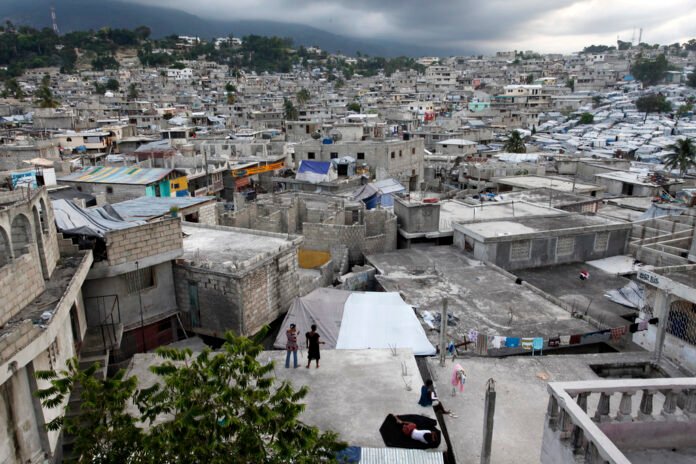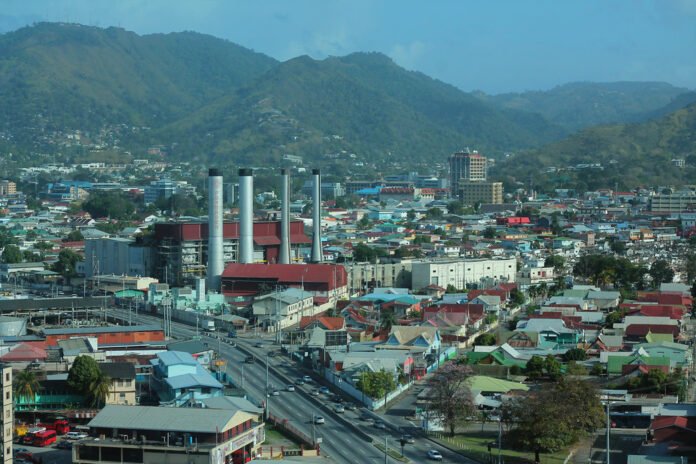Public and private health insurance systems in Honduras play distinct roles in delivering healthcare access, shaped by socioeconomic and geographic disparities. While both aim to ensure health coverage for different segments of the population, they vary widely in scope, quality, accessibility, and affordability. Understanding their similarities and differences is essential for navigating healthcare options in Honduras.
Similarities
Both public and private health insurance systems in Honduras strive to provide access to medical care, including outpatient and inpatient services. Public insurers like the Honduran Social Security Institute (IHSS) and the Ministry of Health (MOH) offer a range of essential health services—much like private insurers, which also provide coverage for surgeries, consultations, and maternity care. Another shared aspect is their efforts to contract services from both public and private healthcare providers. For instance, IHSS collaborates with both sectors under a family medicine model, while private insurers often arrange partnerships with major private hospitals and clinics.
Moreover, both public and private systems are undergoing change to improve health outcomes. The public system is being reformed under the 2015 Framework Law on Social Protection, aiming for universal health coverage by integrating public schemes, while private insurers continue to expand coverage options and technology-driven services, particularly for urban and international clientele.
Differences
Despite a few common goals, the two systems differ starkly in terms of coverage, quality, accessibility, and cost.
Public health insurance—mainly managed by IHSS and the MOH—covers a larger portion of the population. The MOH is responsible for nearly 90% of Hondurans, primarily serving rural and low-income populations, while IHSS covers about 37.1% of formal sector workers. Services are mostly free or low-cost, making them accessible to the majority. However, public facilities often suffer from underfunding, staff shortages, long wait times, and limited availability of medications and specialized treatments, particularly in rural regions.
In contrast, private health insurance caters to only 2.9% of the population, focusing on wealthier individuals, urban residents, expats, and international travelers. These plans are typically more expensive, but they provide faster, more efficient, and higher-quality services in better-equipped private hospitals and clinics. International insurers go a step further, offering emergency evacuation, multilingual support, and direct billing options—services rarely found in public institutions. However, such benefits often require prior arrangements, residency documentation, or upfront payment.
Top Public Health Insurance Providers in Honduras: A Detailed Overview
Honduras has a limited but critical set of public health insurance institutions that aim to provide healthcare access across varying segments of the population. Though there are fewer than five formal public health insurers, the main institutions—the Honduran Social Security Institute (IHSS) and the Ministry of Health (Secretaría de Salud – SESAL)—serve the vast majority of the population, especially formal sector workers and low-income communities. These entities are undergoing transformation under national healthcare reforms to improve equity, efficiency, and reach.
1. Honduran Social Security Institute (IHSS)(Official website: https://www.ihss.hn/ )
- Cost: IHSS operates on a contributory basis, where employers and employees in the formal sector make monthly payments. Contribution rates vary but typically amount to 2.5% of the worker’s salary, with an additional 5% paid by the employer.
- Coverage Features: IHSS provides comprehensive services, including:
- Outpatient consultations
- Inpatient care and surgeries
- Emergency services
- Maternity care
- Preventive health screenings
- Outpatient consultations
- Eligibility: Limited to formal sector employees and their dependents. Informal workers, the unemployed, and rural residents are largely excluded.
- Core Financial Features: Services are mostly free at the point of use once enrolled. Funding is sustained through payroll contributions.
- Consumer Satisfaction Score: Moderate (around 5.5/10) – While it offers solid benefits for enrollees, long wait times, administrative delays, and equipment shortages reduce satisfaction.
2. Ministry of Health (Secretaría de Salud – SESAL)(Official website: http://www.salud.gob.hn/ )
- Cost: Services are generally free of charge or low-cost, subsidized by the government.
- Coverage Features: Provides basic and essential healthcare to around 90% of the population, especially in rural and underserved areas. Services include:
- General and emergency care
- Maternal and child health
- Vaccinations
- Family planning
- Disease prevention programs
- General and emergency care
- Eligibility: Open to all, especially targeting uninsured and economically vulnerable populations.
- Core Financial Features: Fully funded through public taxation and international aid. No direct payment or insurance contribution is required from patients in most cases.
- Consumer Satisfaction Score: Low to Moderate (around 4.8/10) – Although services are accessible, persistent issues such as medication shortages, understaffed clinics, and poor facility conditions affect public perception.
3. National Health Insurance under the Framework Law on Social Protection (In Progress)
- Cost: To be determined based on income levels under a mixed contributory and subsidized model.
- Coverage Features: Envisioned to offer universal coverage through a national Health Benefits Package (PBS) that includes 74 essential health services such as:
- Basic diagnostics
- Chronic disease management
- Hospitalizations
- Maternal and child health
- Basic diagnostics
- Eligibility: Will include both formal and informal workers, rural communities, and subsidized low-income groups.
- Core Financial Features: Mixed financing through payroll contributions (formal sector) and government subsidies (for the poor).
- Consumer Satisfaction Score: Not yet applicable – Program is still in implementation phase, with pilots and evaluations ongoing.
Top Private Health Insurance Providers in Honduras: In-Depth Analysis
Honduras has a modest but growing private health insurance market, catering mainly to middle- and upper-income individuals, expatriates, and those seeking faster, more comprehensive healthcare services than what public systems provide. While not as broad or competitive as in more developed nations, several established insurers and international affiliates operate in the country. Below are the top private health insurance providers currently serving the Honduran market.
1. MAPFRE Honduras(Official website: https://www.mapfre.com.hn/seguros-gastos-medicos/ )
- Cost: Premiums range from HNL 15,000 to HNL 60,000 annually (approximately USD 600–2,400) depending on age, health condition, and coverage limits.
- Coverage Features: MAPFRE offers a wide variety of plans including:
- General and specialist consultations
- Surgical procedures and hospitalizations
- Emergency medical evacuation
- Maternity care
- International coverage add-ons
- General and specialist consultations
- Eligibility: Open to all, including individuals, families, and corporate clients. Requires medical underwriting.
- Core Financial Features: Co-pays typically range from 10% to 30%, with coverage ceilings between USD 50,000 to USD 500,000 per year.
- Consumer Satisfaction Score: High (7.8/10) – Clients praise MAPFRE for its quick reimbursement processes, diverse network, and international partnerships.
2. Pan-American Life Insurance Group (PALIG Honduras)(Official website: https://palig.com/honduras (also https://palig.com/es/honduras)
- Cost: Plans start from USD 500 to USD 2,000+ per year, depending on age and the selected benefits package.
- Coverage Features:
- Preventive care
- Specialist visits and diagnostics
- Advanced hospital care
- Oncology and critical illness coverage
- U.S. and regional network options
- Preventive care
- Eligibility: Available for individuals and families, as well as SMEs and corporate clients.
- Core Financial Features: Offers plans with 100% coverage for in-network providers and optional deductible reductions. Annual maximums can exceed USD 1 million.
- Consumer Satisfaction Score: Very High (8.2/10) – PALIG is highly regarded for its customer service, medical network, and claims transparency.
3. ASSA Compañía de Seguros Honduras(Official website: https://www.assanet.com.hn/ )
- Cost: Ranges from USD 400 to USD 1,800 annually, depending on coverage and age group.
- Coverage Features:
- General medical services
- Specialized care
- Emergency treatment and hospitalization
- Dental and vision add-ons
- General medical services
- Eligibility: Open to individuals and groups; underwriting applies.
- Core Financial Features: Co-insurance usually 20%-30%; includes local and regional hospital networks. Offers flexible deductible options.
- Consumer Satisfaction Score: Moderate to High (7.2/10) – Recognized for affordability and bilingual support, though network availability can be limited in rural areas.
4. Seguros Atlántida Salud(Official website: https://segurosatlantida.com/) (see “Seguro Médico Hospitalario”)
- Cost: Premiums typically range from USD 350 to USD 1,500 annually.
- Coverage Features:
- Basic outpatient and inpatient care
- Emergency transport
- Chronic disease management
- Some international treatment options
- Basic outpatient and inpatient care
- Eligibility: Available to individuals, families, and businesses; generally more focused on the national market.
- Core Financial Features: Co-payment structures apply (typically 20%-25%). Some plans feature direct billing with private clinics in Honduras.
- Consumer Satisfaction Score: Moderate (6.5/10) – Noted for its competitive pricing, but some clients report delays in claims processing.
5. BMI (Best Meridian Insurance) Honduras
- Cost: Premiums range from USD 600 to USD 2,500+ annually, depending on plan complexity and coverage scope.
- Coverage Features:
- International medical coverage
- In-patient and out-patient services
- High-limit surgical and ICU coverage
- Wellness and preventive services
- International medical coverage
- Eligibility: Available for locals and expatriates. Offers family and corporate plans.
- Core Financial Features: High annual maximums (up to USD 5 million). Offers flexible deductibles and options for worldwide coverage including the U.S.
- Consumer Satisfaction Score: High (7.9/10) – Clients value global reach, policy flexibility, and comprehensive coverage, though premiums are on the higher side.
READ MORE: Private and public health insurance of Niger (Make informed choices)


